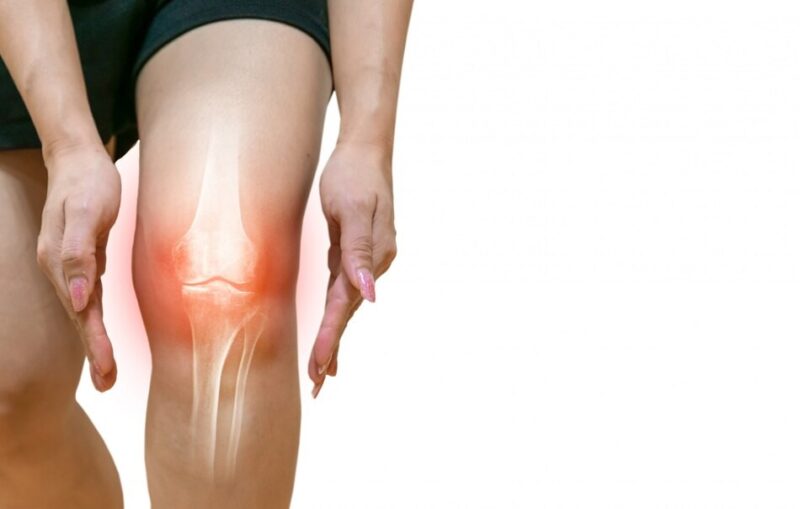You must eat carefully if you have joint pain, inflammation, or swelling. In this piece about joint health, we look at how different foods can affect arthritis symptoms. It is essential to know how diet affects bone health and inflammation. Based on our study, fats, sugars, salt, nightshades, purines, advanced glycation products, and processed foods may make arthritis worse. This piece helps people with arthritis choose a food that is good for their health and well-being.
The Effects Of Diet On Arthritis
What you eat can affect your bone health, arthritis, and inflammation. What you eat and your joint conditions are linked. Because of this, being aware and making smart choices are necessary. For joint care, it’s essential to know how diet changes inflammation. Pain, swelling, and stiff joints are all common signs of arthritis caused by inflammation.
Some foods can make inflammation worse or better. For good bone health and gout control, you need to be a healthy weight. Being overweight stresses your joints, making stiffness and pain worse. A healthy weight and a stable diet can help lower stress and keep joints healthy. Symptoms may last for a long time if there is persistent inflammation. So, food may affect arthritis.
Some things make inflammation worse, while others make it better. A healthy, well-balanced food might help with arthritis and its effects. A healthy diet is vital for bone health in people with arthritis. Bone strength and health depend on how much calcium is in the bones. Food with essential minerals, especially calcium, keeps bones strong and reduces the risk of bone pain.
How Fats Influence Arthritis
It is essential to know that fats can have good and bad effects on inflammation in arthritis. Omega-6 fatty acids are found in acorns, sunflower seeds, and other veggie oils. These acids may make inflammation worse. To lessen this effect, they should reduce how much they drink.
Also essential are the saturated fats found in meat, butter, and cheese. They are not dangerous, but more than 10% might worsen inflammation. There needs to be a mix of these fats in the food. Too much trans fat in processed foods is a problem. They make inflammation worse and drop good cholesterol.
To take care of arthritis, you must read nutrition labels closely and avoid processed foods that contain trans fats. Lipids play a complicated role in arthritis, and knowing this helps people choose healthy foods. Eat healthy fats like nuts, avocados, and seeds to reduce swelling and improve joint health.
Sugars And The Causes Of Joint Pain
Refined sugars are very painful for people with arthritis. Their effects on reducing inflammation make joint pain worse. Rheumatoid arthritis is more likely to happen if you drink soda or other sugary drinks. There are extra sugars and drinks in breakfast cereals, sauces, and bread. People should read labels because these secret sugars may worsen joint pain and inflammation.
If you have arthritis, you need to stay away from artificial sugars. A diet low in extra carbs is crucial because too much sugar worsens the body’s inflammation reaction. People with arthritis should eat whole, raw foods and less sugar to ease joint pain and improve joint health.
Overeating Salt And Autoimmune Diseases
Salt is linked to autoimmune diseases, like arthritis, and how they worsen. If you have rheumatoid arthritis, eating more salt might make your symptoms worse. In addition to affecting joints, salt can also affect heart disease, kidney problems, heart failure, and strokes.
Most junk foods are high in salt, which makes inflammation worse and hurts people with autoimmune diseases. A lot of salt is in fast foods like sweets and deep-fried foods, which raises the risk of getting an inflammatory disease.
Joint and overall health are affected by autoimmune diseases, so controlling salt intake is very important. Eating whole, unprocessed meals and reducing salty prepared foods is essential. This method keeps your heart healthy and lowers your chance of getting inflammatory diseases.
The Potential Impact Of Nightshades
Solanine-containing nightshades have been looked at to see how they affect arthritis. There isn’t a lot of scientific evidence to support this, but some people with arthritis say that eating nightshade veggies makes their joint pain worse. Tomatoes, bell peppers, chili peppers, eggplant, and potatoes are all nightshades.
Some people may get gout from solanine, which is found in nightshades, but studies have not proven it. Some people stay away from nightshades for a few weeks to see how they affect arthritis. A food log can assist you in keeping track of joint pain and inflammation. Once nightshades have been removed from the diet, they can be added back one at a time to find triggers.
How Purines Are Related To Gout
Gout, an inflammatory pain, is closely linked to purines, naturally occurring food parts. When you break down purines, you get uric acid. Uric acid can form urate crystals in your joints, which can hurt and swell up with gout.
Some foods have a lot of purines, which can increase uric acid levels. People with gout should stay away from foods that are high in purines, like liver, organ meats, alcohol, and lunch meats. There are also scallops. People with gout need to limit the amount of purines they eat, but not all vegetables that are high in purines are rotten for you.
In moderation, cauliflower, mushrooms, and beans are not linked to gout. To control gout, you need to eat a balanced diet and reduce your intake of purines. To do this, you need to know which foods make uric acid and make intelligent choices to lower your risk of getting gout. As always, people with gout should talk to their doctors or experts about how to make their food fit their health needs.
Processed And Red Meats: Arthritis Risk
Eating many processed foods and red meat may cause or worsen gout. Some parts of some foods may cause inflammatory reactions that hurt joint health, but no one knows how this works. For example, the chemicals and additives in hot dogs and sausages may swell your joints. The high amount of saturated fat in these foods may worsen arthritis symptoms by causing inflammation.
Red foods, like beef and pig, can also make this happen. Some studies say the HCAs and PAHs made during cooking may cause inflammation. People with arthritis might feel better if they eat less processed and red meat. Choose plant-based and lean protein sources. Inflammatory chemicals may be lessened by cooking at lower temperatures, like when you grill or bake.
Conclusion
The complicated link between nutrition and arthritis makes it even more important to make smart food choices to manage symptoms and keep joints healthy. People with arthritis may live a better life by avoiding foods that cause inflammation, like fats, sweets, and processed meats, and eating foods that reduce inflammation, such as whole grains and plant-based replacements. Healthy dietary decisions: healthcare professionals or certified dietitians supervise healthy dietary decisions one-on-one. Now that people know this, they can take anti-inflammatory drugs to get fitter and deal with arthritis.











